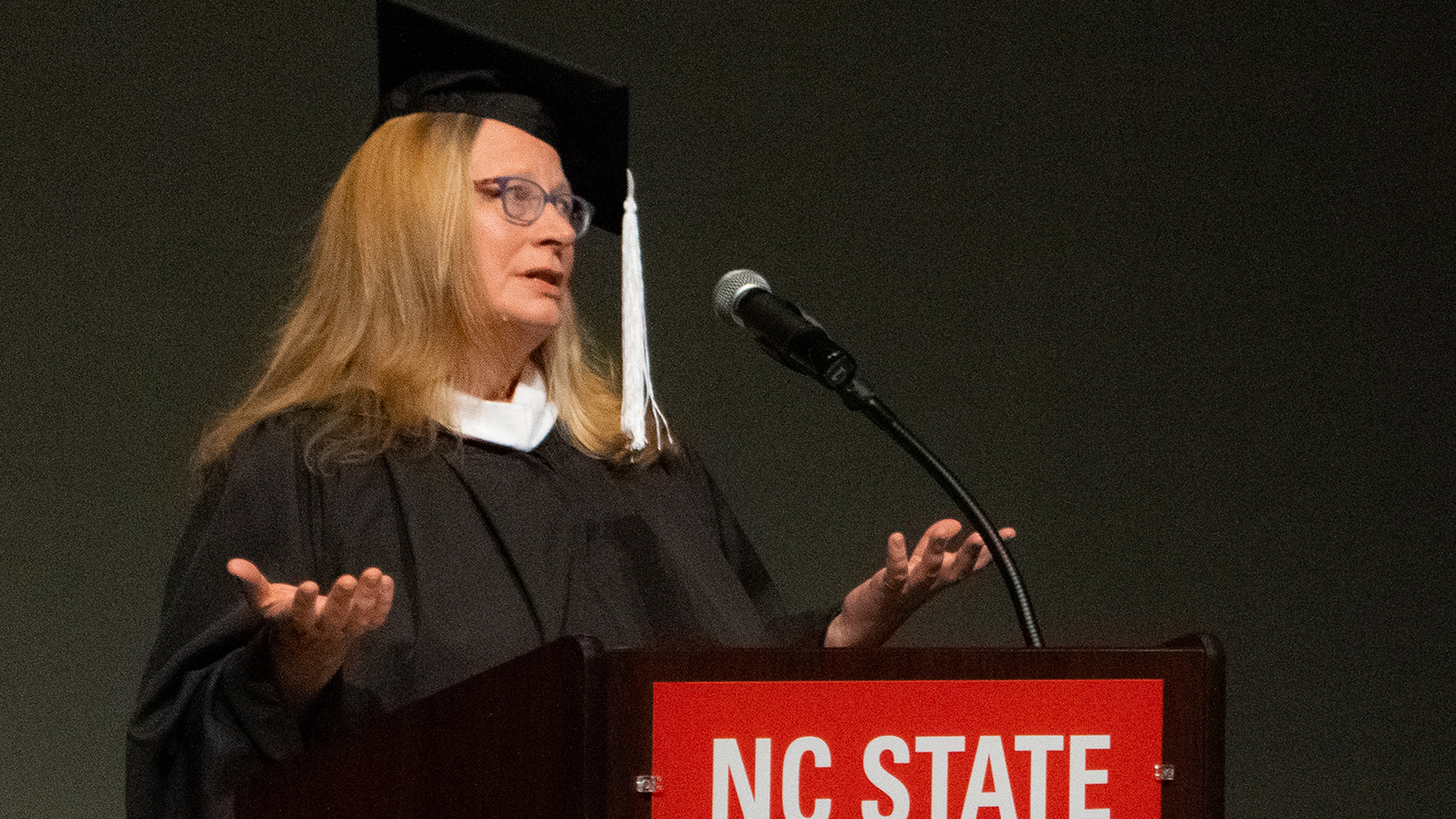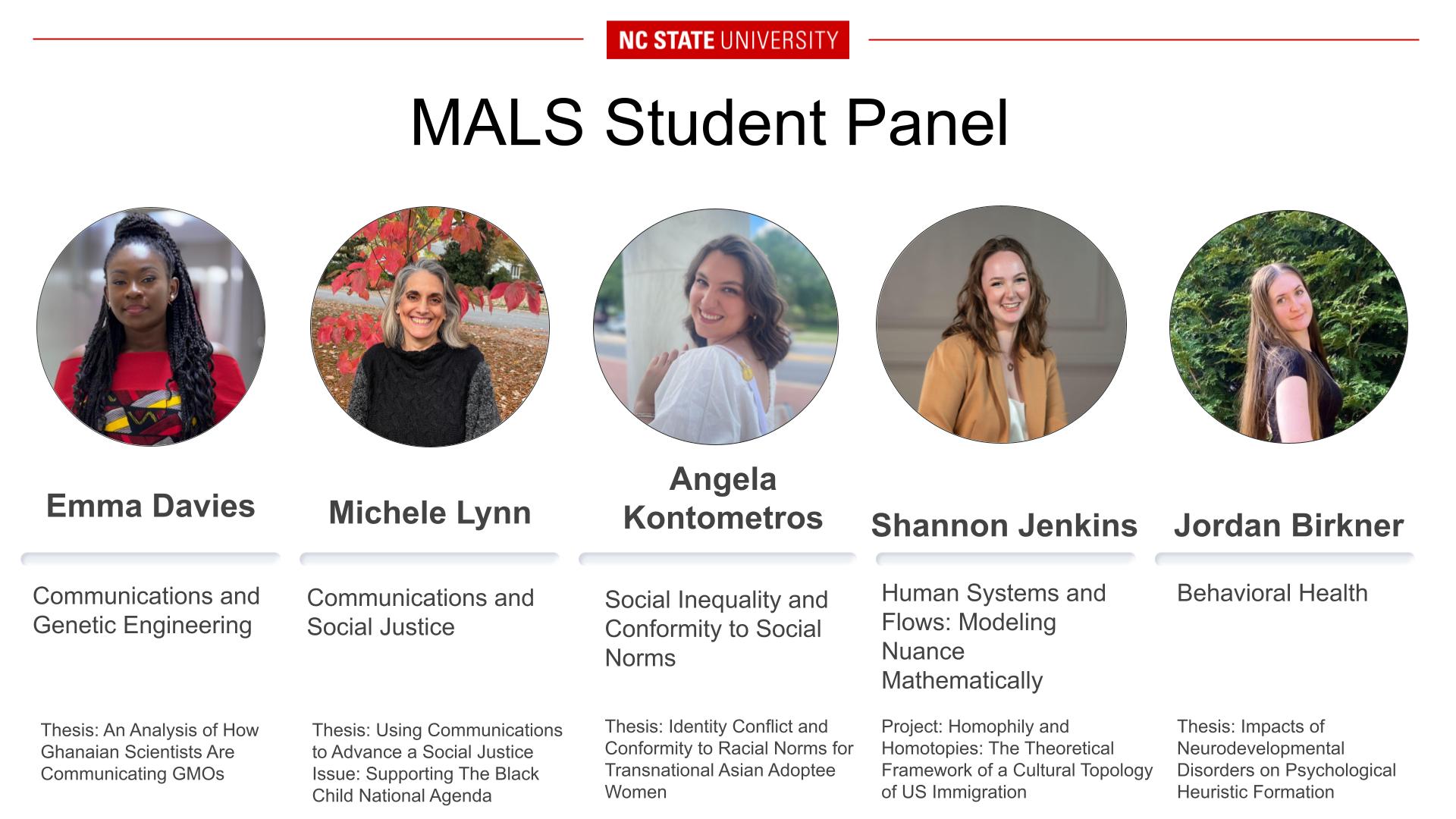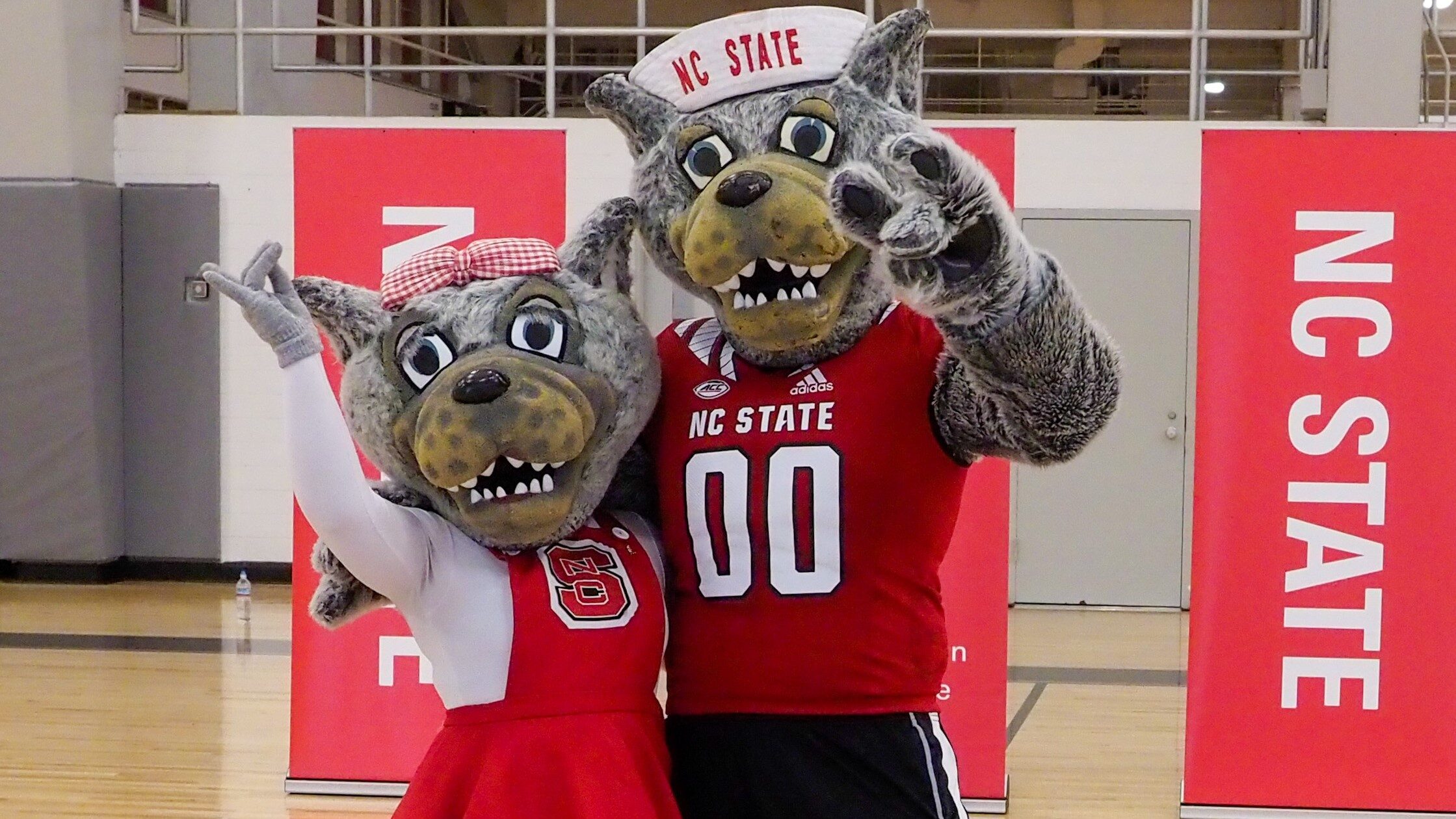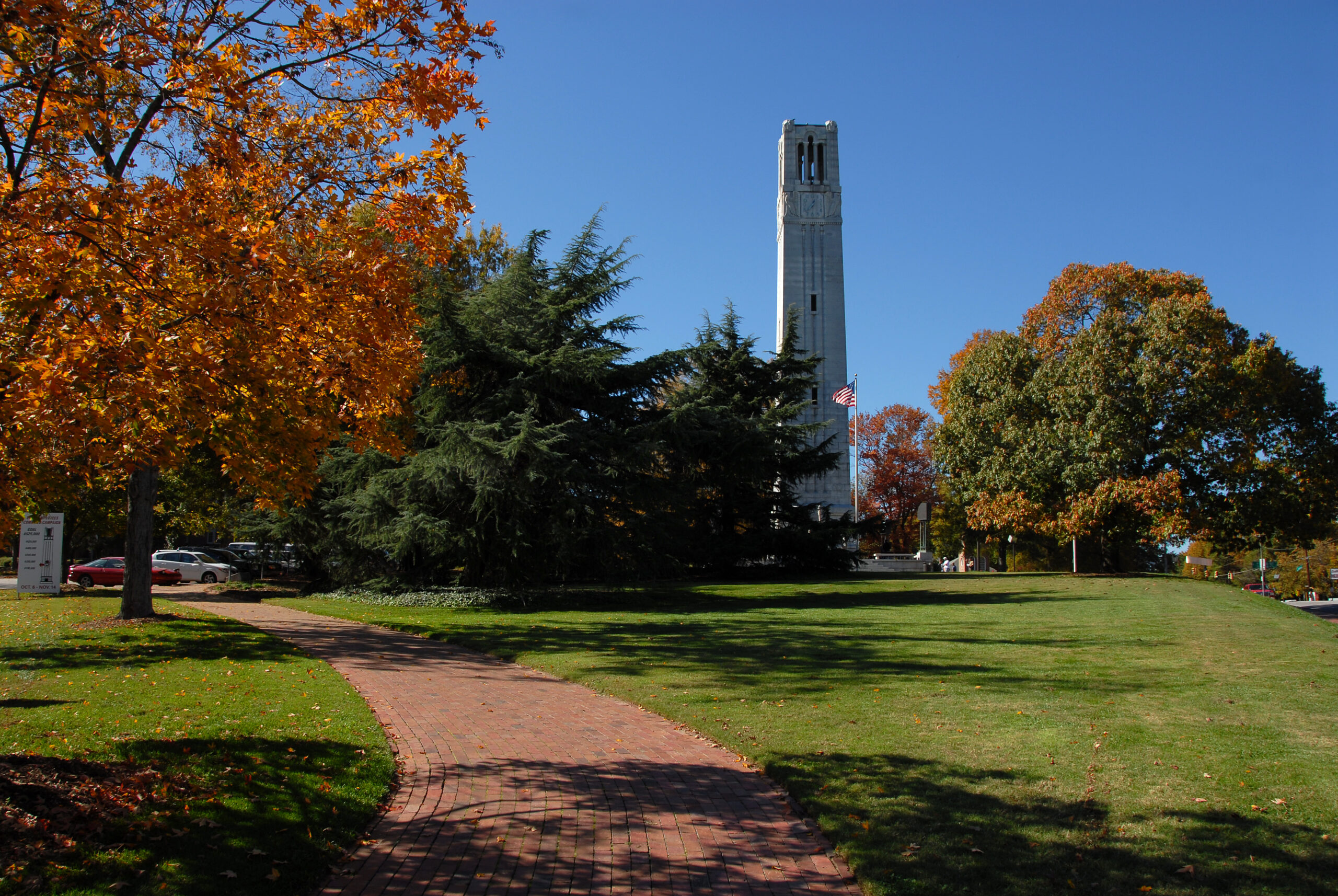MALS Alumna Designs Sexual Harassment Intervention Program

Recent MALS graduate Barbara Loeffler (’19) is no stranger to academia. In addition to earning undergraduate and graduate degrees in physiology, she earned her DVM and practiced small animal medicine for several years. (She also happens to be the spouse of NC State Provost Warwick Arden.) Learn why Loeffler added still more letters behind her name, and how her MALS degree is preparing her to design and implement sexual harassment intervention programs for adolescents.
Tell us about yourself!
I grew up on a small farm in Almont, Michigan, where I learned to love animals of all kinds, especially dogs, cats and horses. My connection to NC State actually began in 2004, when my husband, Warwick Arden, became dean of the College of Veterinary Medicine.
What is your academic and/or professional background?
I attended Michigan State University, receiving a B.S. in physiology in 1985 and a DVM in 1989. I practiced small animal medicine in Lexington, Kentucky, for several years and also attended graduate school at the University of Kentucky, receiving an M.S. in physiology in 1996.
Why did you decide to pursue your MALS degree? How is MALS a good fit for you?
After taking some time off from my professional career to raise four children, I decided to change my career path. The MALS program offered an excellent opportunity to help me achieve my goals: to design a middle school intervention program to decrease the incidence of sexual harassment and develop a nonprofit organization to implement those lesson plans. The interdisciplinary nature of the MALS program appealed to me as the best method to gain the broad knowledge and skills needed to accomplish my goal.
How did you become interested in your area of study? How will you apply an interdisciplinary approach in your work?
The need for an intervention program to decrease the incidence of sexual harassment in schools had become apparent to me while my children were attending public middle and high schools. Given limitations on the resources available to public schools, it seemed that progress on the issue of peer-to-peer sexual harassment among adolescents might best be achieved by a nonprofit organization that worked collaboratively with public school teachers to design and implement an effective, developmentally appropriate intervention program. I have applied — and will continue to apply —knowledge gained from several disciplines in my work: from education, developmental psychology, and women’s and gender studies in designing lesson plans that utilize the existing middle school language arts curriculum to improve empathy and interpersonal communication skills, and from nonprofit leadership in implementing them.
How will MALS enhance your professional experience?
Through the broad range of coursework available to me, the MALS program has been enormously beneficial in helping me design a better intervention program. My professors, and particularly my committee members, Drs. Karey Harwood, Cathy Crossland, and Kelly Lynn Mulvey, have been instrumental in supporting and directing my efforts, not only to improve my curriculum program, but also with advice and potential contacts for the implementation phase.
- Categories:


